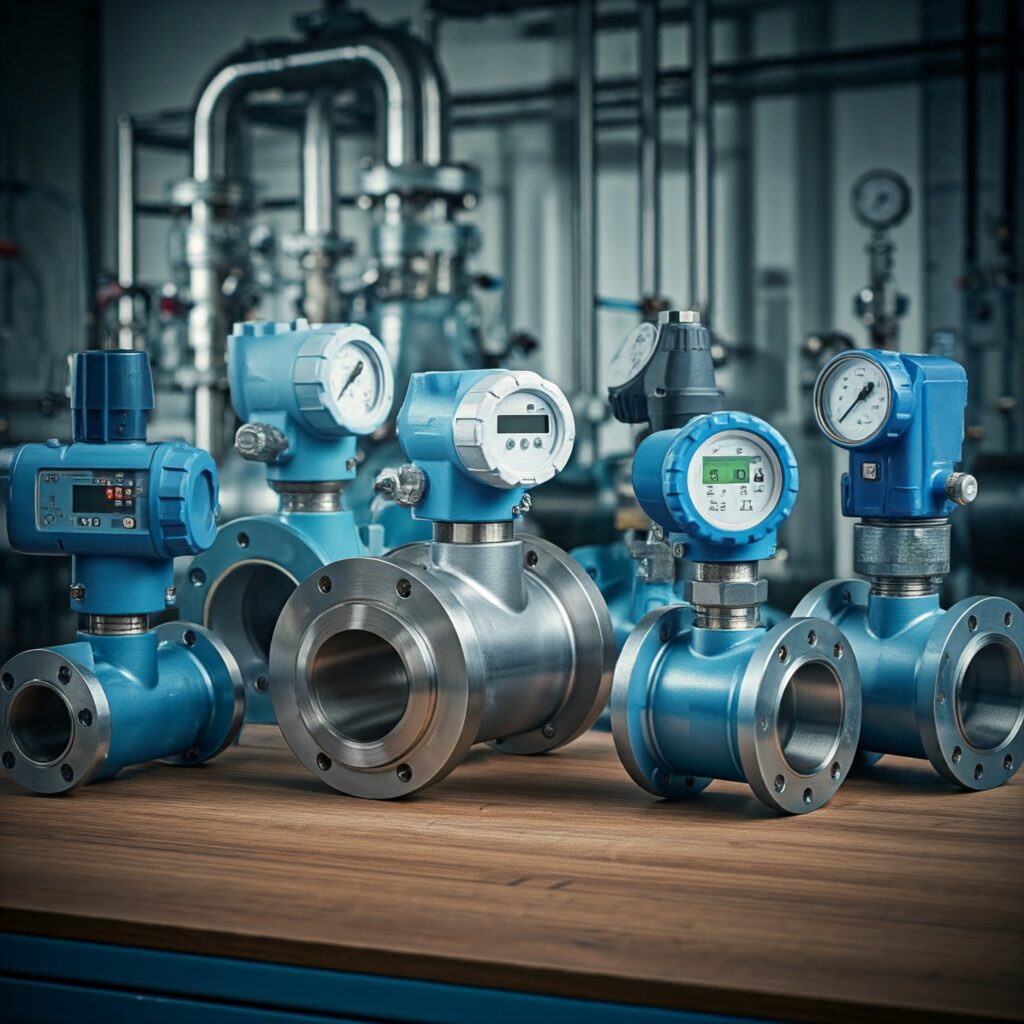
Flow meters are essential devices widely used in various industries to measure the flow rate of liquids, gases, and steam. These instruments play a critical role in process control, ensuring that fluids are transported, mixed, and managed effectively. In this blog, we will dive deep into the world of flow meters, exploring their types, applications, and how to choose the right one for your needs.
What is a Flow Meter?
A flow meter is an instrument designed to measure the quantity or rate of a fluid moving through a pipeline. It provides data that is crucial for monitoring and controlling processes in industries like oil and gas, water treatment, pharmaceuticals, and food and beverage. Accurate measurement is vital for optimizing production, maintaining quality, and ensuring safety.
Types of Flow Meters
There are a few kinds of Flow meters, each intended for explicit applications. We should investigate the absolute most normal sorts:
Differential Pressure Flow Meters: These meters measure flow by detecting the pressure drop caused by an obstruction in the flow path, such as an orifice plate, venturi tube, or flow nozzle. They are widely used due to their simplicity and reliability.
Magnetic Flow Meters: Also known as mag meters, these devices measure flow by detecting the voltage generated by a conductive fluid moving through a magnetic field. They are ideal for measuring the flow of water, chemicals, and slurries.
Coriolis Flow Meters: These meters measure mass flow and density by detecting the force exerted by a flowing fluid on a vibrating tube. They provide highly accurate measurements and are commonly used in oil and gas, food processing, and chemical industries.
Ultrasonic Flow Meters: Ultrasonic meters use sound waves to measure flow. They are non-intrusive and can measure the flow of liquids and gases without directly contacting the fluid. These meters are highly accurate and are used in applications where hygiene is critical.
Turbine Flow Meters: Turbine meters measure flow by recognizing the rotational speed of a turbine put in the flow stream.
Key Applications of Flow Meters
Flow meters are used in a wide range of industries to measure and monitor fluid flow. Here are some common applications:
Water and Wastewater Management: Flow meters help monitor water usage, detect leaks, and manage wastewater treatment processes.
Oil and Gas: In the oil and gas industry, accurate flow measurement is crucial for process control, custody transfer, and ensuring safety.
Chemical Processing: Precise flow measurement is essential for chemical dosing, blending, and reaction control.
Food and Beverage: Hygienic flow meters ensure the accurate measurement of ingredients and maintain the quality of food and beverage products.
Pharmaceuticals: In the pharmaceutical industry, flow meters ensure precise dosing of liquids and gases, maintaining strict quality control standards.
How to Choose the Right Flow Meter
Choosing the right flow meter depends on several factors, including the type of fluid, flow rate, pressure, temperature, and the environment in which it will be used. Here are some key considerations:
Fluid Type: Different flow meters are designed to handle different fluids. For example, magnetic flow meters work best with conductive fluids, while ultrasonic flow meters are ideal for clean, homogeneous fluids.
Accuracy Requirements: Depending on the application, you may need a flow meter with high accuracy. Coriolis flow meters offer some of the highest accuracies available.
Installation Conditions: Consider where the flow meter will be installed. Some meters require straight pipe runs for accurate measurement, while others can operate in tight spaces.
Maintenance Needs: Some flow meters are low-maintenance, while others require regular cleaning and calibration. Choose a meter that fits your maintenance capabilities.
Conclusion
Flow meters are indispensable tools in modern industry, providing critical data that helps maintain control, optimize processes, and ensure safety. Understanding the different types of flow meters and their applications can help you make an informed decision when selecting the right instrument for your needs. Whether you are managing water resources, optimizing a chemical process, or ensuring the quality of food products, the right flow meter can make all the difference.

